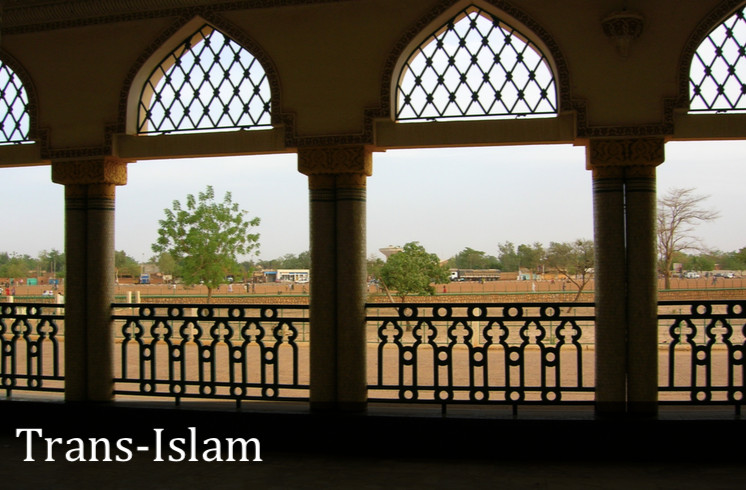TransIslam Research Programme
Discover the project
TransIslam is a two-year research program (2014–15) initiated by IFRA-Nigeria, funded by CSFRS, and led by a team of seven researchers from Niger, Nigeria, France and the UK.

The area that today encompasses northern Nigeria and southern Niger has been particularly dynamic since the late-18th century: powerful Hausa commercial cities such as Kano, Katsina, Zaria, and Zinder have exerted a cultural and economic influence, while the hegemony of the Sokoto Caliphate has allowed for a broad dissemination of specific religious practices and knowledge. Today, northern Nigeria (the states of Kaduna, Kano, Sokoto, Borno, Katsina, Kebbi, Yobe, and Jigawa) and southern Niger (the regions of Diffa, Zinder, Maradi, Tahoua, and Dosso) still constitute a homogeneous zone, whose strong cohesion is based particularly on cultural and linguistic unity, permanent and largely informal commercial exchanges, and extensive human circulation. Islam is also an essential unifying element, one whose forms, discourse, practices, and modes of dissemination have changed. The channels through which religious ideologies are currently transmitted between northern Nigeria and southern Niger overlap with other economic and social dynamics. This region, rooted in the tradition of commerce, is a zone of passage, transit, and of numerous trades; it is a migratory, commercial, and financial crossroads. All these exchanges facilitate the transmission and dissemination of currents of thought related to Islam, especially those coming from northern Nigeria, which have a constant influence in southern Niger and beyond in neighbouring countries.
The TransIslam project focuses on the various ways in which these new thinking processes and practices of Islam emerge. First, this project examines the appearance of ‘reformist’ movements, which were influenced by foreign models and are competing with older movements. It then analyses the place of early Sufi movements. Deeply rooted and still constituting a large majority, these movements have adapted to contemporary dynamics and are constantly evolving. Finally, the project aims to understand the nature and role of new radical movements.
Methodology
The TransIslam project uses a cross-border perspective, which has so far been little developed in studies on Islam in Niger or in Nigeria. The project therefore seeks to bring together Anglophone and Francophone fields of research, which have long remained impermeable to each other. The old ties between southern Niger and northern Nigeria as well as their strong cultural and linguistic cohesion are assets which can be used in this field of research.
The project was coordinated from Ibadan in Nigeria, while meetings and seminars were held in Niamey, Niger. The first meeting took place on 18–19 March 2014 in Niamey and brought together all the researchers for the first time. Several months were then dedicated to fieldwork, to allow everyone to collect enough data to conduct his or her research.The TransIslam project also aims to pay particular attention to young researchers from both Niger and Nigeria by supporting research projects related to the themes developed, through the funding of fieldwork and the publication of their research results.
The outputs of this research are :
-
the final report available below (with French and English content)
- A collective book published within the WAPOSO series (2020)
Meet the team
Research project coordinator
- Dr. Elodie Apard (IFRA-Nigeria)
Research team:
- Dr. Sounaye Abdoulaye
The role of preaching in the Niger-Nigeria Islamic dynamic. - Dr. Mustapha Gwadabe
The relationships between Traditional brotherhoods and Izala. - Dr. Adam Higazi
The influence of Reformist movements among the Fulani communities in Nigeria and Niger. - Dr. Elodie Apard
The social, political and cultural impact of the Nigerian reformist movements’ establishment in Niger. - Dr. Rahmane Idrissa
The hegemony of Islam and its implementation methods, through Arabic and Ajami manuscripts. - Prof. Mohammed Kyari
The evolution of Boko Haram in a transnational perspective. - Prof. Marc-Antoine Pérouse de Montclos
The evolution of Boko Haram movement in Niger.
Junior researchers :
- Djibrillou Boukar
- Hamidou Nabara
Partners
Conseil Supérieur de la Formation et de la Recherche Stratégiques:

Outputs
Trans-Islam book
 Transnational Islam : circulation of religious ideas, actors and practices between Niger and Nigeria
Transnational Islam : circulation of religious ideas, actors and practices between Niger and Nigeria
Trans-Islam report
Trans-Islam meetings
 October 28-29, 2015 – Trans-Islam Project, last Meeting
October 28-29, 2015 – Trans-Islam Project, last Meeting

 Trans-Islam Research Project: fieldwork
Trans-Islam Research Project: fieldwork
Social Media
Mailing List